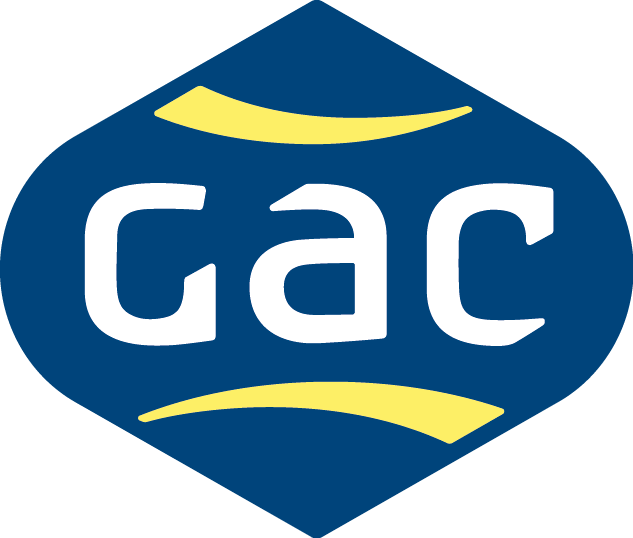
Meet our Regional Manager in Tromsø, Henning Lien, a 36-year-old whose maritime and outdoor adventures began at the tender age of 15.
With a career that spans vessel renovations at a shipyard, skippering whale-watching tours, and guiding expeditions in Svalbard and Tromsø, Henning's early start in the industry has paved the way for a rich and varied professional life. His passion for the great outdoors, bolstered by a bachelor's degree in Sports- and outdoor, has guided his journey through the maritime sector. In 2019, Henning embarked on a new journey with GAC, bringing his diverse experience and enthusiasm to the forefront as he opened the company's Tromsø office.
Why did you want to work at GAC? I liked the way the company approached me, and I had been following the company for a few years, prior to joining, since I worked for a sub agent for many years. I started in 2019, opening the office in Tromsø. I liked the challenge to open an office and contribute to a great team! Since I had some previous experience with working in shipping, transport and logistics, I really liked the challenge to become a ship agent full time and with the challenges that it brings.
Describe a typical day at work.
You never know what is going to happen! In 2015, I got the same question when working with a cruise vessel, and my reply is still valid: If you think of all the possible questions you can get from a vessel, add some imagination and multiply by at least 2! We work partly as a travel consultant, law consultant and making sure that our customers get the service they need! I like working with customers and suppliers, and solving challenges from start to completion. A day can be everything from a few transports, logistical bookings, shopping and sourcing articles and products, to replacing a missing anchor on a vessel!
What do you particularly like about the job? I like that the job consists of many small and larger projects. Since I handle everything from a crew change of 1 or 2 crew, to full turn around on a cruise vessel, there is a big variation from day to day. I also like the teamwork that we have across the offices, even though I work by myself here in Tromsø. We have a great culture and help each other out! We have to work as investigators and consultants, and find the right and compliant solutions, in a business that is regulated on many levels.
How do you see the shipping industry evolving in the next 5-10 years, and what role do you think technology will play in that evolution? As a future ocean leader, I envision the shipping industry undergoing significant transformations in the next 5-10 years. Technology will play a pivotal role in driving these changes, leading to increased efficiency, better sustainability, and safety across maritime operations. Integrating artificial intelligence, Internet of Things (IoT) sensors, and data analytics will enable real-time monitoring and decision-making, enhancing overall operational performance.
Furthermore, digital platforms and blockchain technology together with a transformative change in regulation, we are poised to revolutionize supply chain management, offering greater transparency, traceability, and security throughout the shipping and logistical process. Embracing these advancements not only improves cost-effectiveness but also aligns with our commitment to the UN SDG goals, particularly Goal 9 (Industry, Innovation, and Infrastructure) and Goal 13 (Climate Action) and Goal 17 (Partnerships for the Goals). By leveraging technology responsibly, we can drive positive change while ensuring compliant sustainable growth in the shipping industry.
In your opinion, what impact will environmental sustainability have on the shipping industry, and how is your organization adapting to these changes?
Environmental sustainability is paramount in shaping the future of the shipping industry. The sector faces increasing pressure to reduce its carbon footprint, minimize pollution, and protect marine ecosystems and biodiversity loss. GAC Norway recognizes these challenges as opportunities for innovation and leadership. Through partnerships in Statsraad Lehmkuhl and One Ocean Expedition and in the research project HyValue, we contribute to the eco-friendly technologies such as low-emission solutions and alternative fuels. GAC also has a strong focus on compliant environmental solutions and waste management solutions. We are actively reducing our environmental impact by maintaining multiple certifications such as the Eco Lighthouse and ISO-standard certifications. Collaborating with industry partners, regulators, and environmental stakeholders, we advocate for sustainable practices and contribute to global initiatives like the International Maritime Organization's decarbonization efforts. By embracing sustainability as a core value, we not only mitigate risks but also enhance our competitiveness and reputation as a responsible shipping agent leader committed to a thriving future for generations to come.
Looking towards the future, what skills do you believe will be most important for professionals in the shipping industry?
Looking ahead, the shipping industry will demand a diverse set of skills from professionals to navigate evolving challenges and opportunities. Technical expertise in areas such as digitalization, and data analytics will be important for optimizing operations, improving efficiency, and meeting regulatory requirements effectively. I believe that continuous learning, curiosity and adaptability will be essential as new technologies and industry standards emerge.
I believe that we need to have a strong focus on sustainability, environmental stewardship and compliance will give GAC an advantage as a leading ship agent. We will require professionals to possess knowledge of green technologies, laws, regulations, and best practices. Collaboration and communication skills will be paramount for building partnerships across sectors, fostering innovation, and addressing complex global issues collaboratively. Embracing diversity, inclusion, and ethical leadership will also play a vital role in driving positive organizational culture and sustainable business practices. By focusing on these skills, future shipping professionals can contribute meaningfully to a resilient, responsible, and prosperous maritime industry.


Comentários